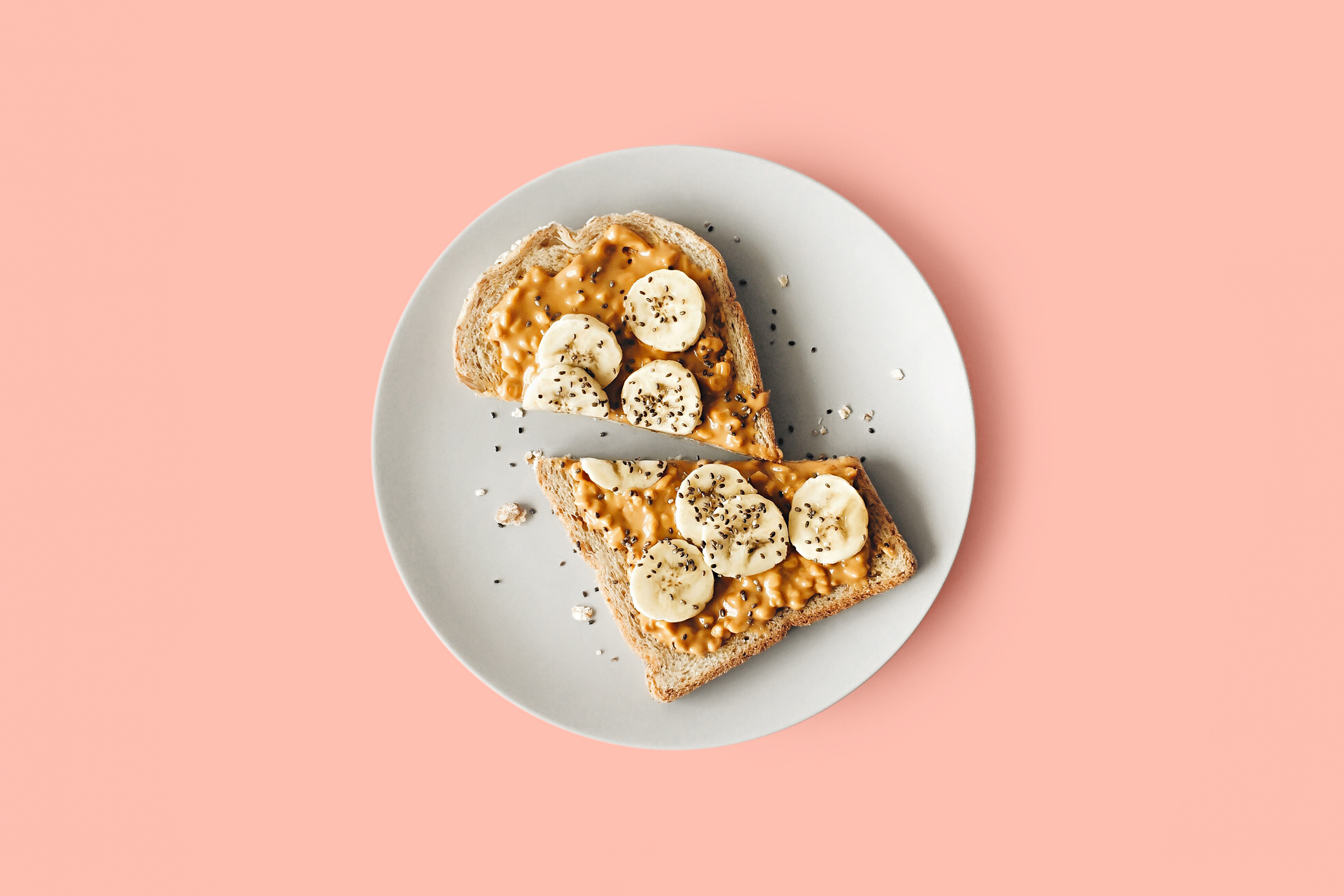
Nutrient-dense snacks that actually taste good? We're sold.
If you're anything like me, you love a good mid-afternoon snack. I'm not usually a grab-a-bag-of-crisps kind of person (unless I've had a wine the night before... yup), but as someone who works out fairly regularly, I am an eternally-hungry-mid-afternoon kinda gal. Hence where healthy snack ideas come in.
Speaking to Lauren Windas, registered nutritional therapist (mBANT, CNCH), naturopath, and director of Ardere, it's fair to say the science on snacking is, well, a mixed bag. Some studies indicate that snacking on the reg is linked to both weight gain and obesity.
But as the expert points out, it's all about the type of snacking you do.
Mindlessly grazing on crisps, chocolate, and sweets all day is entirely different to eating a snack mid-afternoon that is a balance of all three macronutrients - that's carbohydrates, fat, and protein, FYI - and nutrient-dense, too. "The pattern and nature of our snacking makes all the difference," Windas shares. "The relationship between snacking and weight status is determined more by the energy density and nutritional value of said snacks, rather than the act alone."
Think of it this way - there's no solid evidence at all that eating three meals a day and one or two balanced "mini-meals" is bad for you - quite the opposite, and as someone who naturally eats smaller portion sizes, this way of eating works for me. That being said, others may prefer to stick to three nutritionally balanced meals - each to their own, after all.
Enjoy a good snack and keen to fill up on nutrient-dense options that'll both keep you satiated and support your metabolic health? Look no further. The nutritionist has shared her go-to ten, and we have two words for you: peanut butter...
What counts as a snack?
According to the pro, a snack is usually defined as any food that is eaten in between main meals. "There are many reasons why we might snack during the day - it could be the grumble of our tummies in the hours between breakfast and lunch, or perhaps a sudden dip in energy levels that a small bite of food can remedy," she explains.
Celebrity news, beauty, fashion advice, and fascinating features, delivered straight to your inbox!
That, or maybe you just love the taste of certain snack options and simply enjoy the ritual of daily snacking. Each to their own.
Don't miss our guides to gut health, protein powders, and how many fruit and veg servings you should be aiming for, while you're here, or explainers on how to follow a plant-based diet or vegan diet, too.
10 healthy snack ideas to try now
1. Trail mix
What is it? Windas shares that a trail mix is a type of snack mix, often a combination of dried fruit, nuts, seeds, and sometimes granola. "It's a super-portable option that you can pop into a small Tupperware box and take with you on the go which, fun fact, was initially developed for hikers," she shares.
Nutrition wins? Trail mix is high in plant-based protein, heart-healthy fats, and fibre, which help to balance the sweetness in the dried fruits. "Just watch out for some varieties that have any added sugars and salt," she recommends.
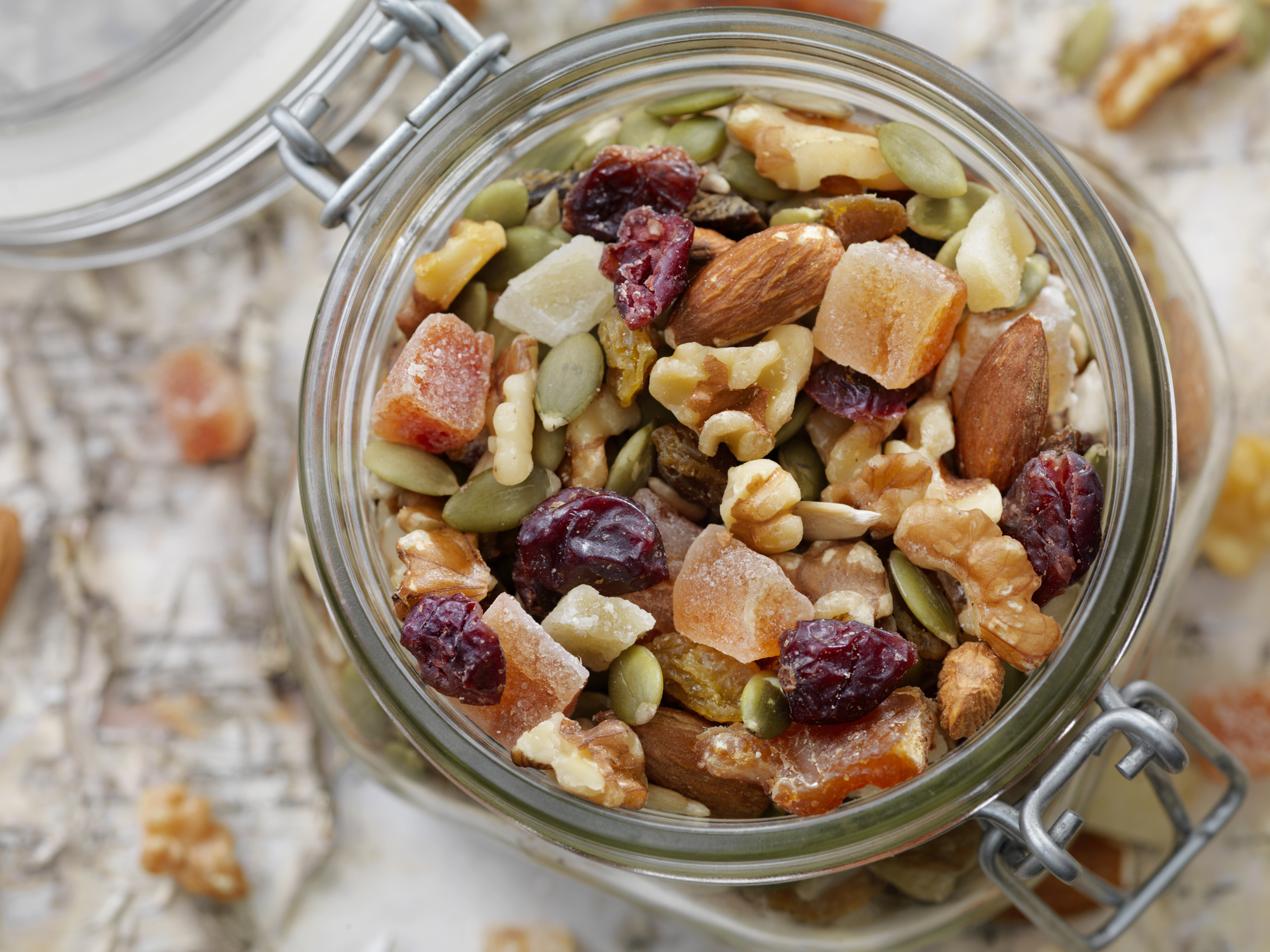
2. Carrot sticks and houmous
What is it? To state the obvious, batons of carrot with a portion of houmous, to dip.
Nutrition wins? "Carrots are a great way to get beta-carotene, a plant chemical converted to vitamin A in the body which is key for fighting illness, seeing clearly, and boosting skin health,," shares the nutritionist. Fun fact: it is also a good source of fibre, which helps to feed our gut bacteria and is a great snack option when combined with hummus.
Not to mention the houmous, will give you some protein, fibre and plenty of healthy fats, all key for blood sugar control.
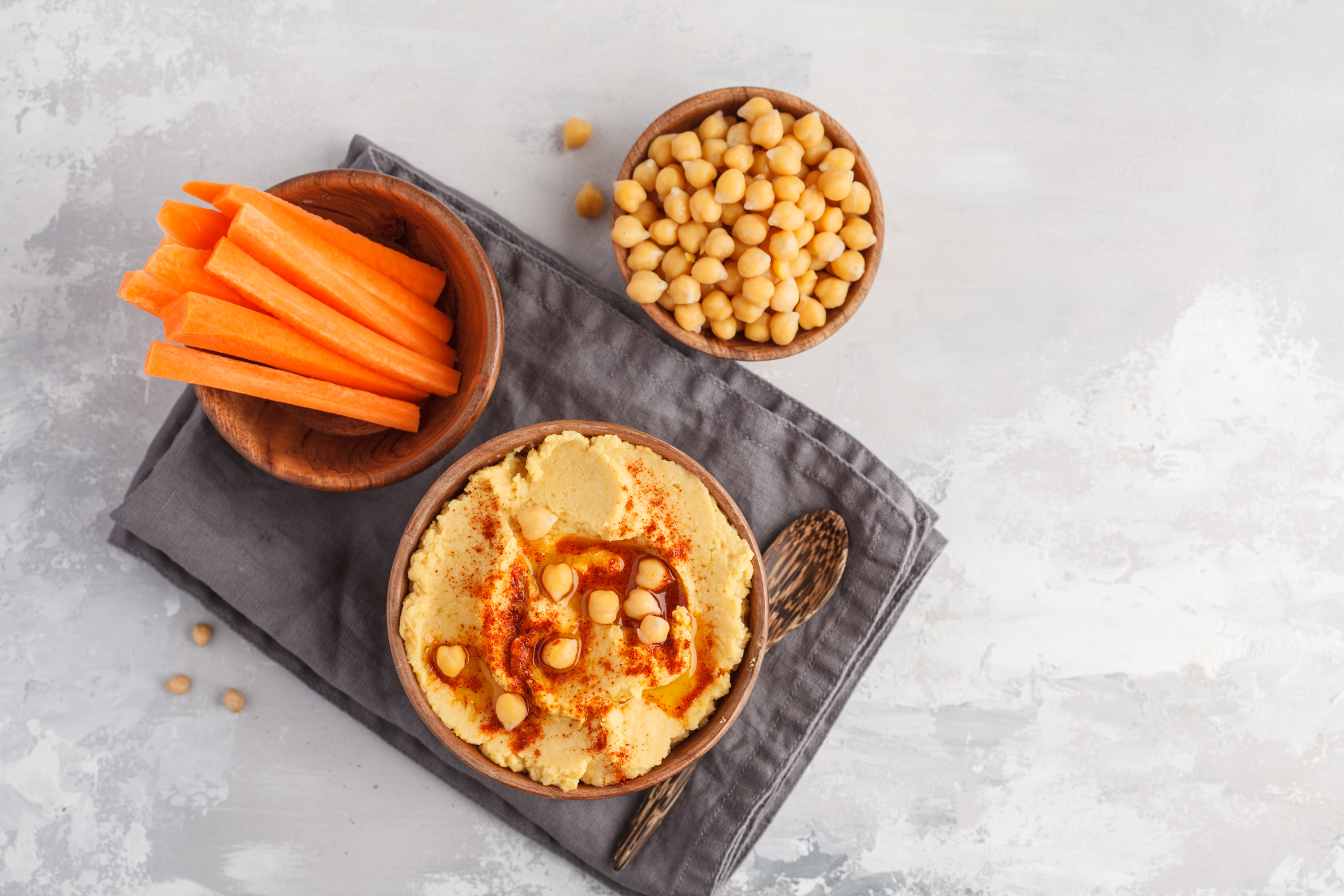
3. Strawberry and banana protein smoothie
What is it? A refreshing mix of strawberry, banana, and protein - add ice to make it extra thick and creamy. Not a strawberry fan? Any berry will work here, and if you're saving your pennies, do opt for frozen. They're just as nutritious, cheaper, and last longer, too.
Nutrition wins: "This is such a delicious drink to enjoy in between your meals," shares Windas. "If you're keen to up your protein or are feeling fruity, give it a try."
Read our guide to what protein actually is and vegan protein sources or shop our health editor's round-ups of the best protein powder here.
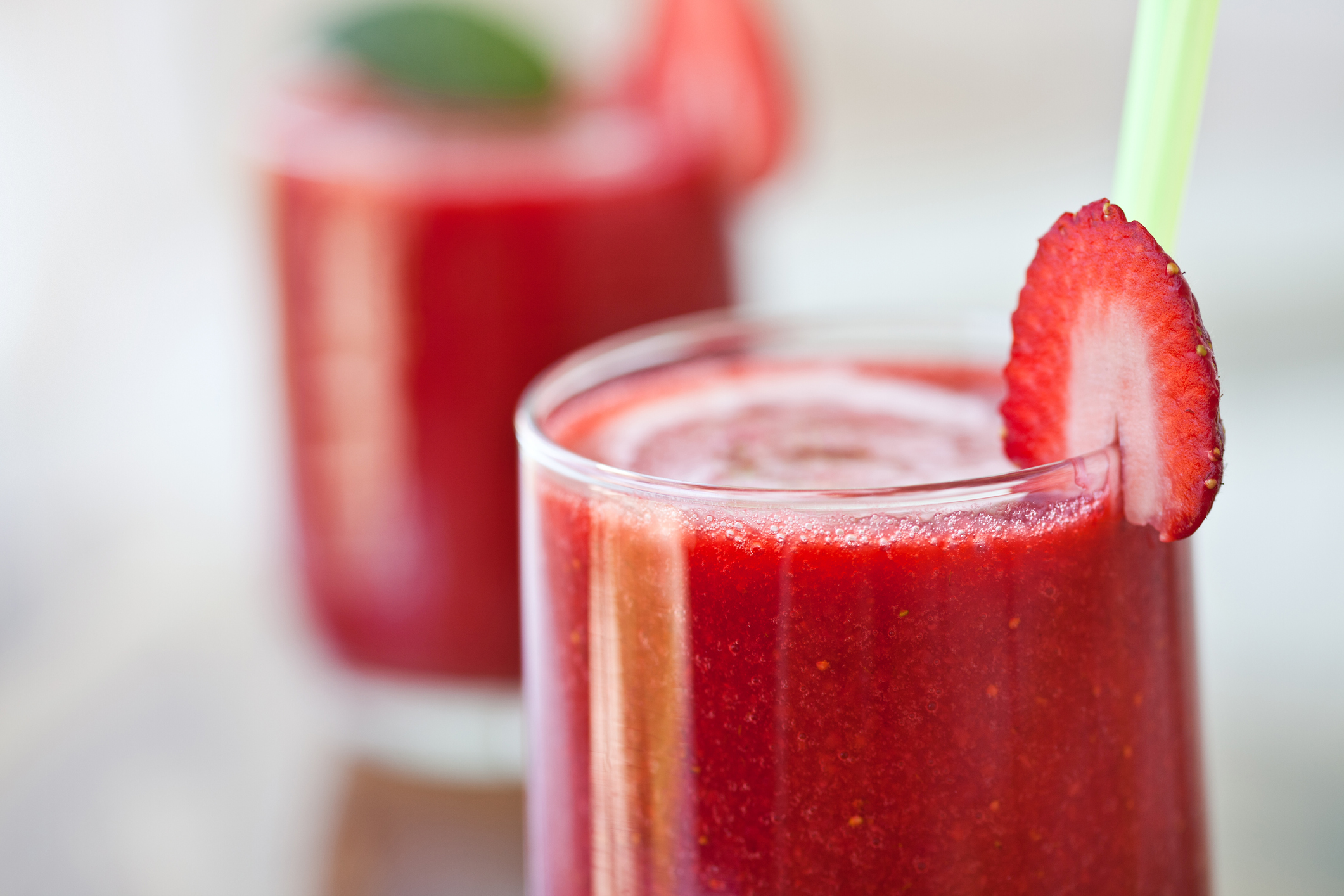
4. Boiled eggs
What is it? A simple, easy, and convenient snack that packs a nutritional punch, shares the pro.
Nutrition wins? Balanced with protein and healthy fats, this is a great one for your metabolic health, she shares. "Plus, the protein content will keep you fuller for longer - you'll be consuming approximately 6g protein per egg," she goes on. Fun fact: you'll also be consuming key nutrients in the yolk, such as choline to support your nervous system and vitamin D which is great for bone health, too.
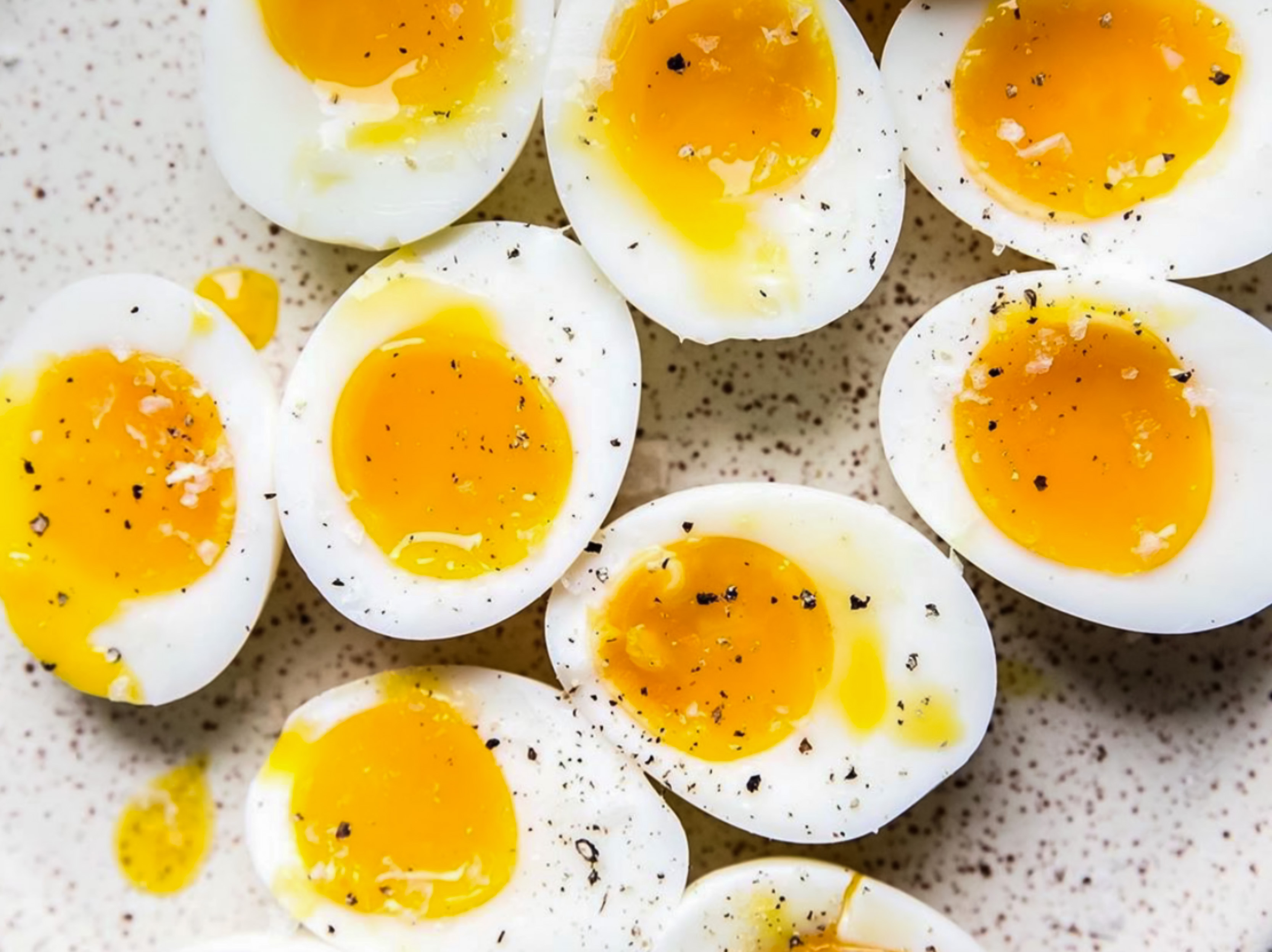
4. Celery sticks dipped in peanut butter
What is it? Again, the clue is in the name with this one - chopped up sticks of celery with a portion of your favourite PB.
Nutrition wins? "A deliciously crunchy combination that's high in amino acids," shares the expert. Amino acids are extra important for vegans or those that struggle to obtain enough protein day-to-day, as they are the building blocks of protein in the body.
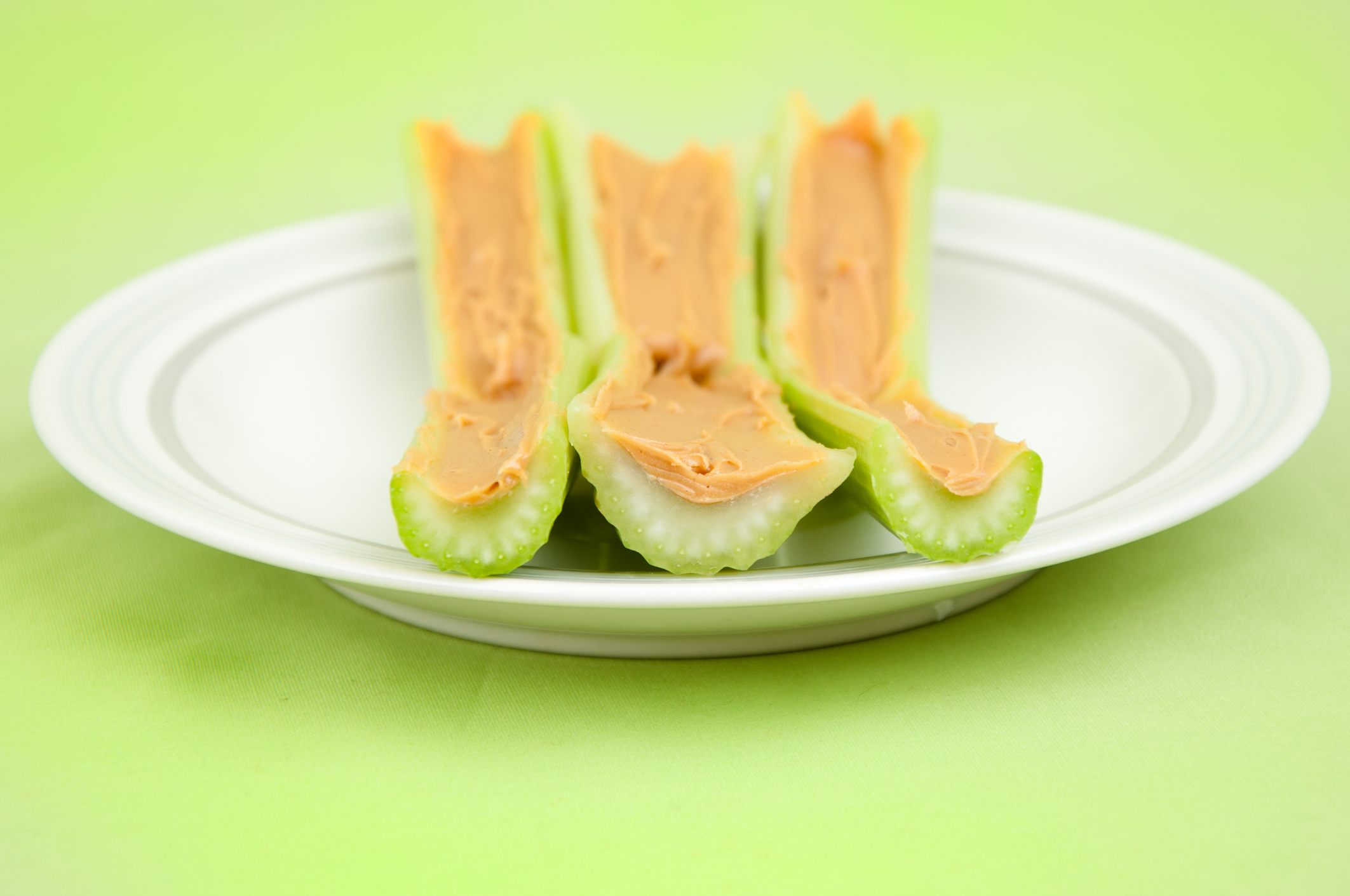
5. Nut butter on wholegrain toast
What is it? One of the easiest, simplest, cheapest snacks out there, that's what. Simply choose your go-to nut butter and spread on toast. Almond, peanut, hazelnut, cashew... the possibilities are endless.
Nutrition wins? "To level up the nutrition of your snack, simply sprinkle a handful of your favourite berries on top," recommends the nutritionist. "Super delicious and quick."
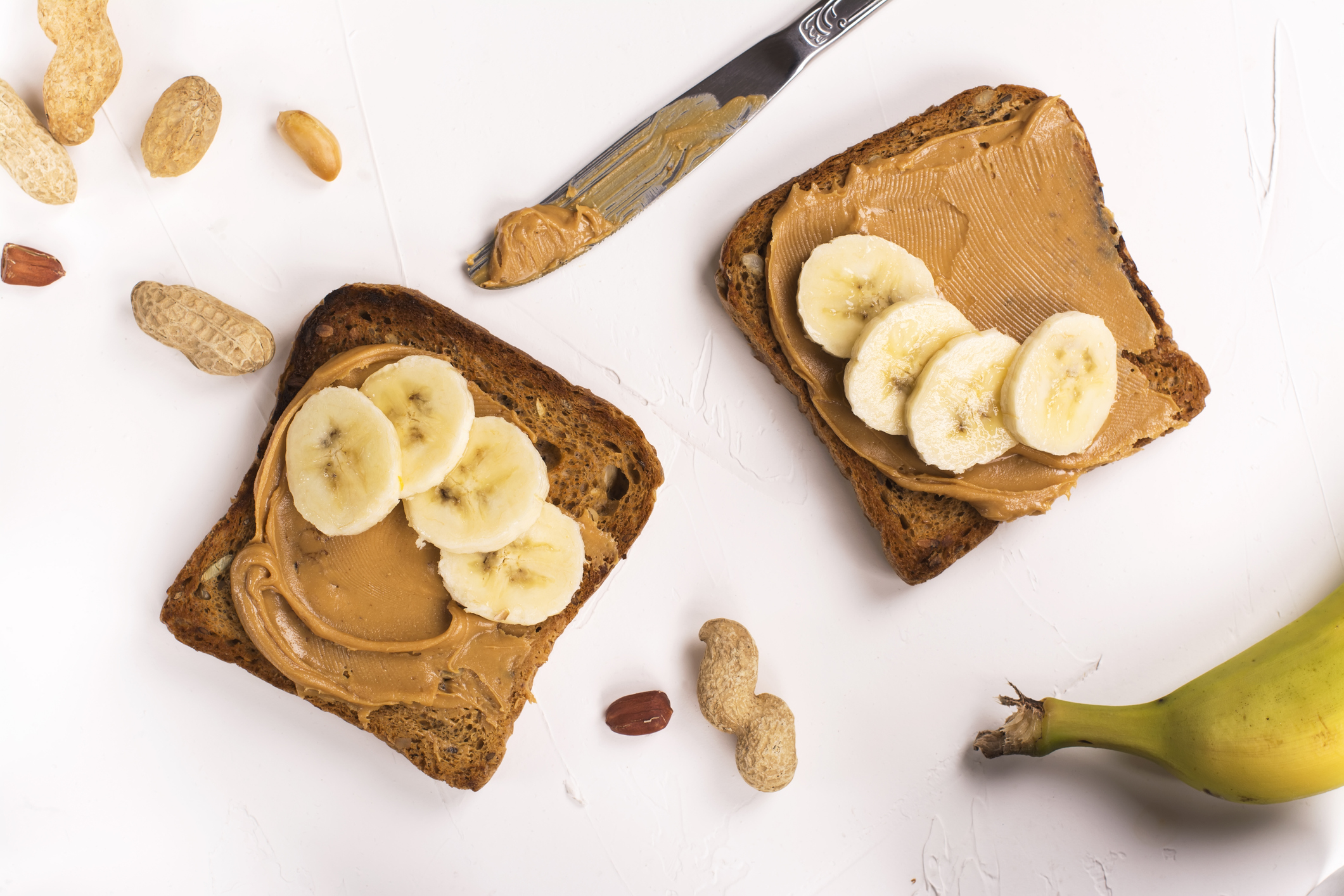
6. Peanut butter on Ryvita
What is it? As above, your favourite nut butter on a Ryvita cracker.
Nutrition wins? As above, most nut butters are high in protein and healthy fats, too. Just be mindful of portion size.
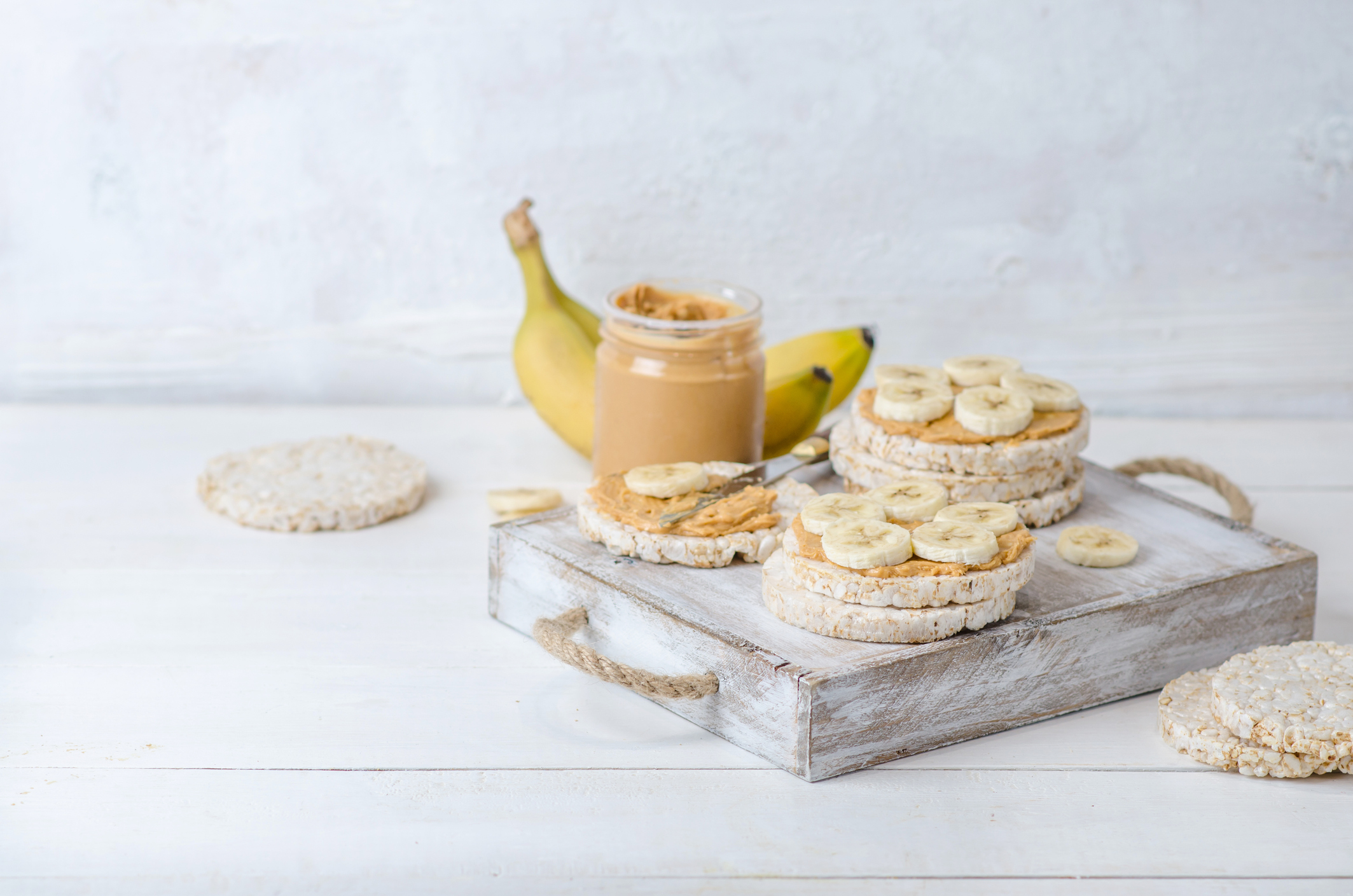
7. Oat cakes, smoked salmon, and avocado
What is it? A portion of smoked salmon and some sliced avocado on one or two oat cakes - simple yet tasty.
Nutrition wins? Windas describes this as a perfectly balanced snack. "Full of omega-3 fatty acids, healthy monounsaturated fats and complex carbs, this is a great choice pick-me-up for if you get hungry during the day," she shares.
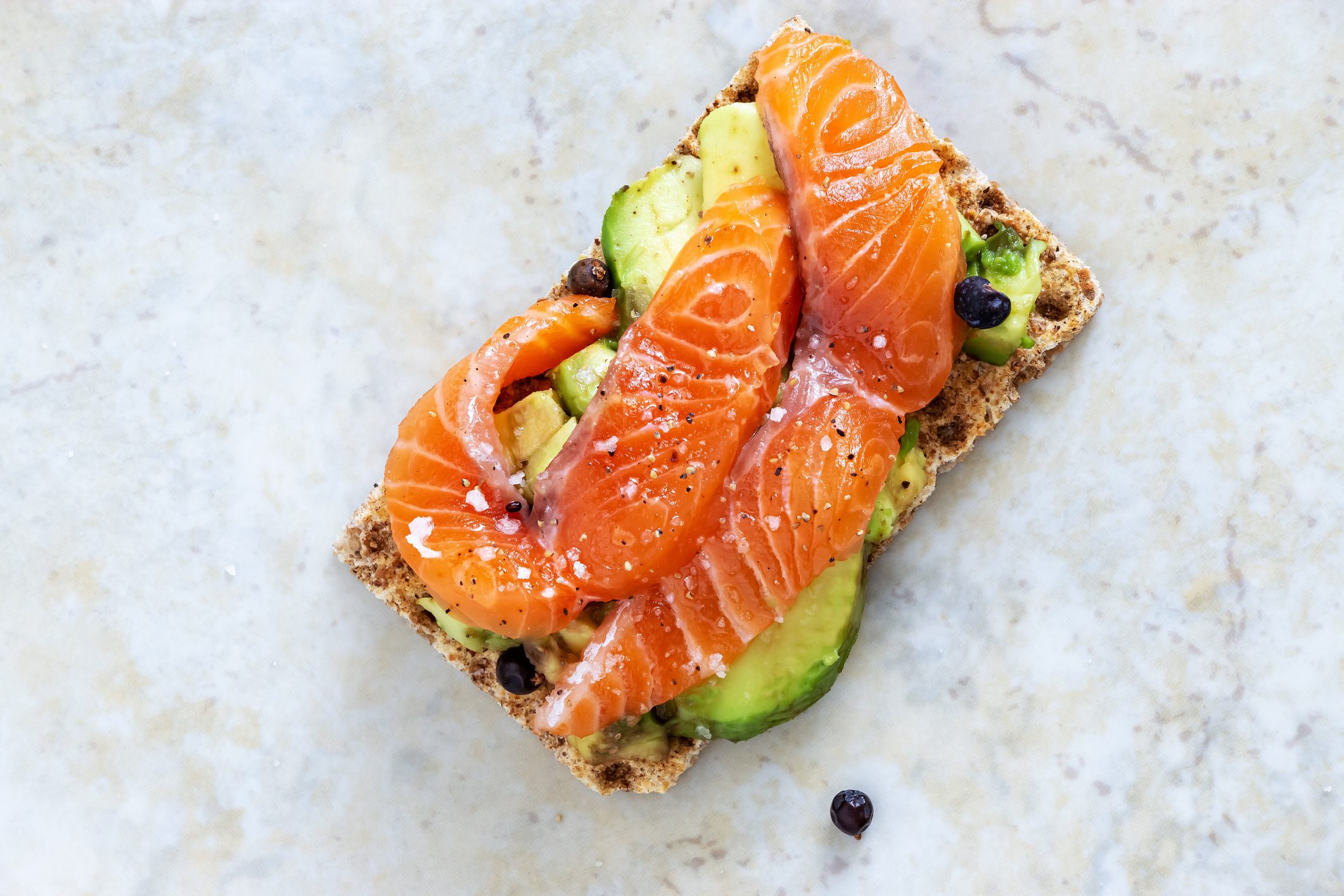
8. Fruit
What is it? The world is your oyster with this one. From apples, to bananas, to clementines, to pears, or even a handful of strawberries or cherries, there are loads of options.
Nutrition wins? "Despite being demonised for its fructose content - really, we needn't worry about a moderate amount - fruit its one of my go-to healthy snack ideas," Windas shares. "The sugar content is balanced out by fibre and the wealth of phytochemicals within fruit."
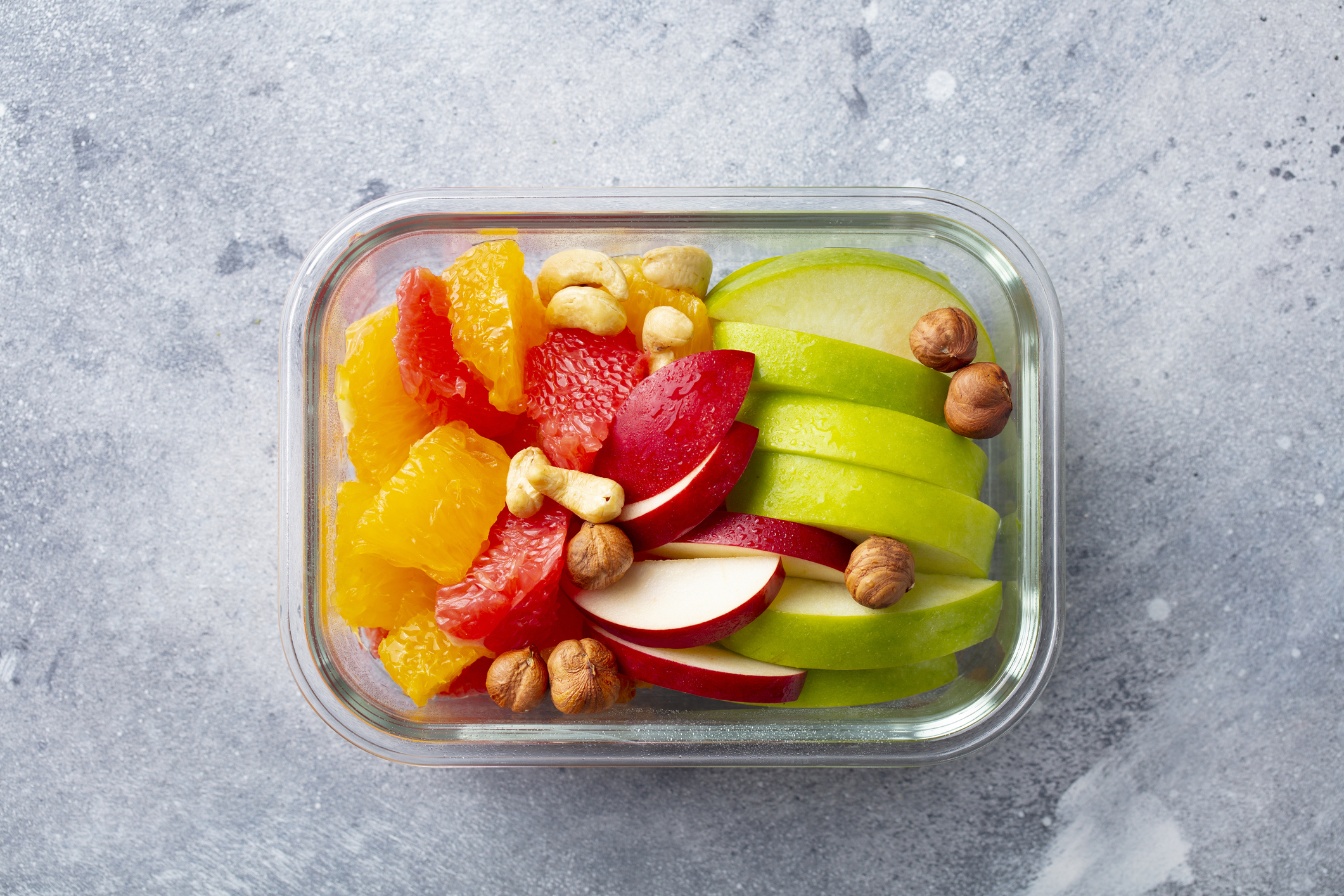
9. Kefir quark with raspberries and flaked almonds
What is it? If you haven't heard of it, kefir is a fermented dairy product which has live probiotics and is high in protein. You can sub out for Greek yoghurt - it tastes similar, but has a tang - both are great for gut health, share the pros.
Nutrition wins? "Kefir will leave your blood sugar levels stable throughout the day and see you through until your next meal," she explains. "Add some raspberries for an antioxidant boost and a sprinkle of almonds for a source of healthy monounsaturated fat and fibre."
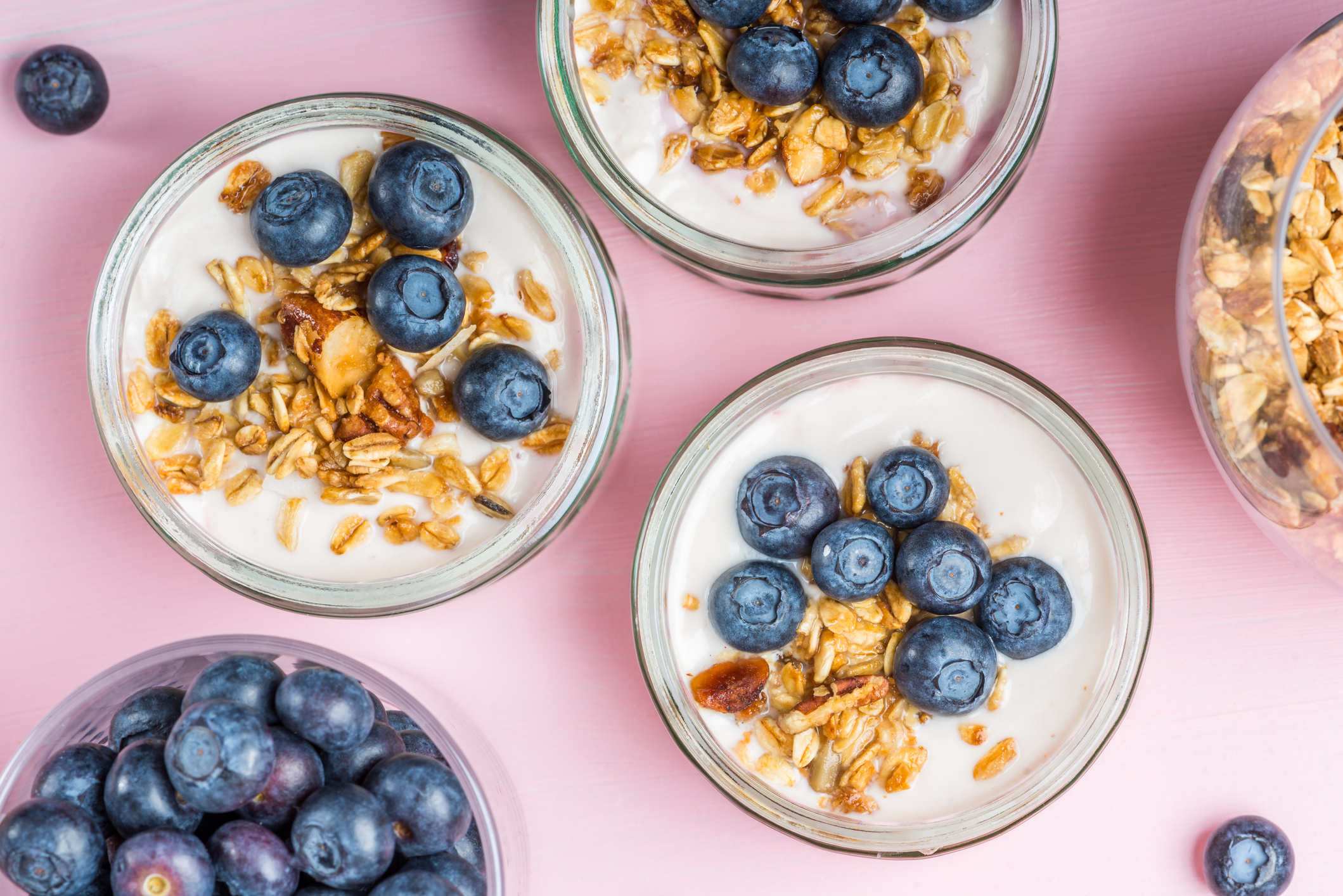
10. Protein date balls
What is it? Get creative in the kitchen with some yummy homemade date balls which you can batch-cook for when you are time poor and feeling peckish during the week.
Nutrition wins? Any homemade balls are packed with plant-based protein and friendly fats from cashew nuts and almonds, shares the nutritionist. "Plus, they're full of natural sugars and fibre, thanks to the dates, and magnesium, thanks to the cacao nibs and powder." Check out Windas' go-to recipe. Healthy snack ideas? Sorted.

Ally is Marie Claire UK's Senior Health and Sustainability Editor, a well-regarded wellness expert, ten-time marathoner, and Boston Qualifying runner.
Utilising her impressive skillset and exceptional quality of writing, she pens investigative, review and first-person pieces that consistently demonstrate flair and originality.
As well as writing, Ally manages a team of freelancers, oversees all commissioning and strategy for her pillars, and spearheads the brand's annual Women in Sport covers, interviewing and shooting the likes of Mary Earps, Millie Bright, and Ilona Maher. Shortlisted for three BSMEs and winning one in 2022, Ally lives and breathes her verticals: her eye for a story and connections within the wellness sphere are unrivalled. Follow Ally on Instagram for more.
